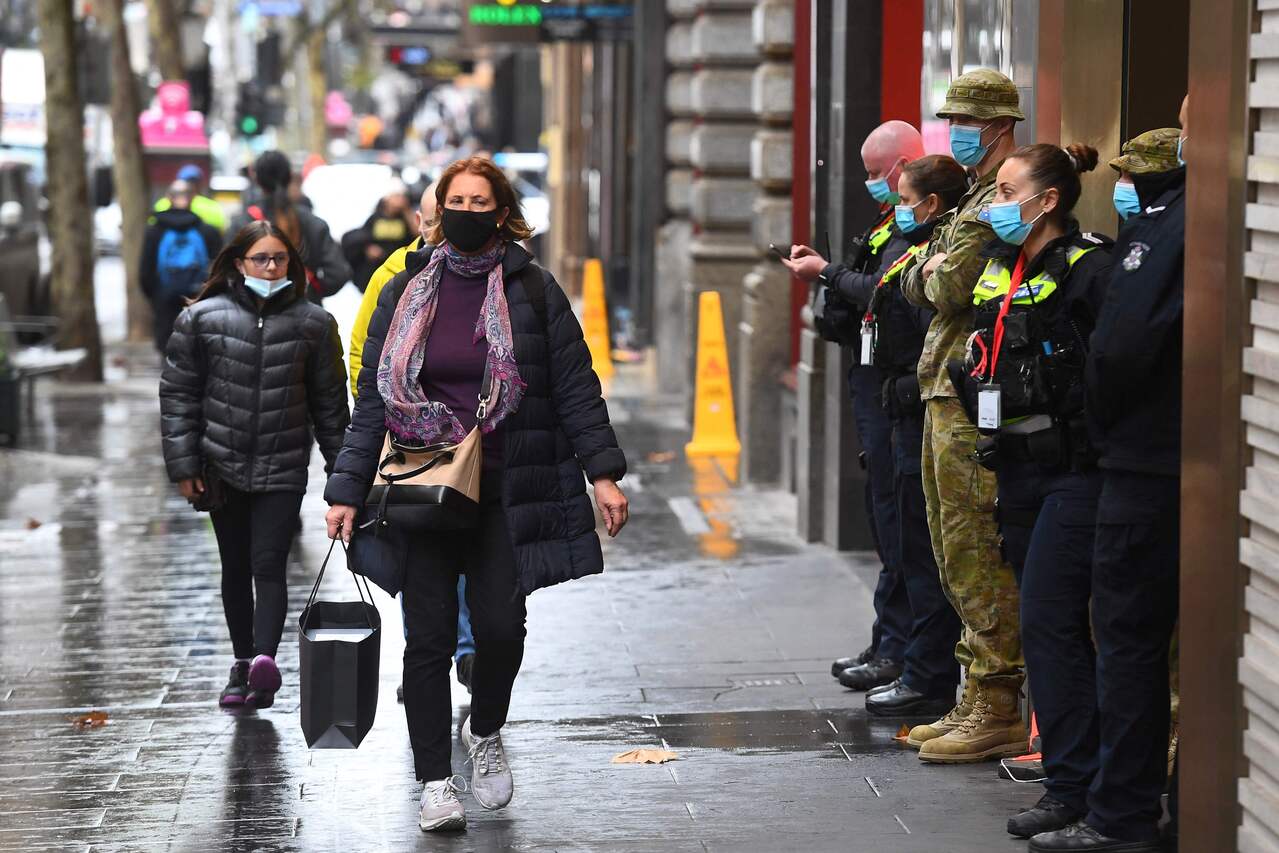Small Covid-19 outbreaks persistent, but Australia in no hurry to open borders
Sign up now: Get insights on Asia's fast-moving developments

A cluster of the highly infectious Delta variant has grown by two cases to nine in New South Wales.
PHOTO: AFP
MELBOURNE (REUTERS, XINHUA) - Australia's state of Queensland recorded one locally acquired coronavirus infection on Sunday (June 20), the latest streak of small outbreaks that have been plaguing the country in recent months.
The Queensland case comes as a cluster of the highly infectious Delta variant has grown by two cases to nine in New South Wales, Australia's most populous state, prompting health officials to expand mask wearing rules.
"We know this strain, which is becoming the dominant strain, is extremely contagious and some people are spreading it more than others, and what we want to avoid at this stage is a superspreading event," New South Wales Premier Gladys Berejiklian said.
Australia has been highly successful in managing the spread of the coronavirus through swift border closures, social distancing rules and a high community compliance with them, reporting just more than 30,300 cases and 910 Covid-19 deaths.
But the country has struggled with the vaccination roll-out and states have been plagued in recent months by small outbreaks, kept from spreading out of control through speedy contact tracing, isolation of thousands of people at a time or snap hard lockdowns.
The state of Victoria, which battled a small outbreak of the Delta variant - first detected in India - earlier this month and that put five million people into a hard lockdown for two weeks, recorded no new cases on Sunday, following one infection in the previous day.
South Australia on Sunday joined Queensland in imposing a ban on travellers who have been in the affected east suburbs of Sydney in New South Wales.
Arrivals from that state to West Australia will have to get tested on arrival at pop-up testing clinics at the Perth airport and self-quarantine until they return a negative result.
According to government data, only about 4 per cent of Australia's adult population of 20 million have been fully vaccinated, while about 25 per cent have had at least their first dose.
On Sunday, the government of Victoria state said it would invest A$5 million (S$5.03 million) to support the manufacture of a local mRNA Covid-19 vaccine, a collaboration between Monash Institute of Pharmaceutical Sciences and the Doherty Institute.
The vaccine is to start Phase 1 clinical trials with about 150 people in October, with results expected in the first half of 2022.
Australia has been manufacturing the AstraZeneca vaccine domestically, but national guidelines recommend that vaccine be given only to those aged 60 and older.
Despite low infection numbers in the country, Australia's trade minister has declared that the government is in "no rush" to reopen the international borders.
Mr Dan Tehan on Saturday confirmed that Australia is negotiating a potential travel bubble with Singapore, but that a final decision would be made by medical experts based on the spread of Covid-19 variants of concern.
"That will largely depend on how these various variants play out and the monitoring of those circumstances," Mr Tehan said.
"It has been made very clear that we will only create a bubble with Singapore when it is safe for us to do so, and in the meantime we're looking at what would be the processes that would enable that to be as safe as possible."
The travel bubble between Australia and New Zealand opened in April, allowing quarantine-free travel to and from Australia for the first time since the start of the coronavirus pandemic.
However, the government has refused to say when the country's borders will be opened to travellers from all countries and regions.
Mr Tehan's comments on Saturday came after Prime Minister Scott Morrison said the government would spend the next six months monitoring the spread of Covid-19 internationally and efficacy of vaccines before making a decision on the borders.
"The jury is out on that and it will be a while, I think, before the epidemiologists can have greater clarity on that. We have to be patient for the evidence and the science," Mr Morrison told News Corp Australia.
The Prime Minister, who is in quarantine after returning from an overseas trip, said a system that identifies people who are fully vaccinated would be key to further travel bubbles.
"In Europe they have a system which works green light, red light. And the green light is if you've had it, so you have the antibodies, if you've had a PCR test within the relevant period or you're vaccinated. These things feed back into other databases to enable the border clearance," he said, referring to the polymerase chain reaction test.


